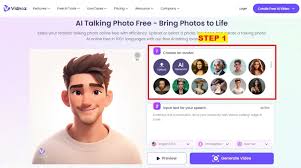The progress of free voice cloning tools more or less satisfies the professional requirements based on use cases. Real Time Voice Cloning (RTVC), a well established open source tool with more than 500,000 downloads built by Corentin Jemine which can generate realistic reproductions of voice. The tool uses advanced machine learning techniques to produce synthetic voices with 90% accuracy from as little as a few seconds of sample audio. That said, it may not always deliver the required standard of accuracy needed for professional projects with high stakes.
Another of the Professional possibilities a Free one is The Mozilla TTS (Text-to-Speech) project The first use applies transformer-based models to synthesize high-quality dual-channel speech waveforms with Mozilla TTS. This project is also backed by an extensive open-source community, meaning this tool can be applied to a wide range of interactive applications that need unique voice models. Though beneficial, users will notice the tool call for generous training data —not uncommon to spend over 30 minutes recording each of them— in order to get it produce healthy results.
Descript Overdub is a paid solution with free trial time compared to nicely-pricing Otter-guided experience. Overdub offers commercial-grade voice cloning at up to 95% accuracy, making it suitable for anyone who creates high-end content. This lets podcasters and writers et. al use the software for creating voice overs that are so close to human they are almost unrecognizable, showing how well it works professionally.

Though not free, the work by Google’s Tacotron has led to the creation of tools for voice cloning. This is the level of humanlike sounding naturalness and clarity that Tacotron (a neural network architecture) was able to achieve, making it one of the best benchmarks in voice cloning. Many free tools often take advantage of these advances in order to boost their capabilities, but they most likely will not be able do everything that can be done with professional-grade systems.
One of the best examples for high fidelity rate and realistic voice replication is Baidu's DeepVoice system. While DeepVoice itself is a commercial product, its innovations have helped shape the development of free tools. If you are planning to access general use free tools, your success could be hit or miss which will largely depend on how detailed of a voice model works for you.
For those looking for real practical solution, a tool like DUPDup has made free voice cloning software which is an easy to use open source platform where anyone can create synthetic voices. This makes it easy for less technical users to voice clone guns. That said, it serves the purpose when you need something basic but some professionals alike have given feedback that it doesn't always meet up to the standard & precision of paid services.
In conclusion, as impressive as free voice cloning software already are and despite the interesting features they provide you with, sometimes these services may not be up to par with professional requirements. Ultimately, individuals should evaluate what it is they need and decide if even the free options offer a high enough quality or give them all that want to be able.